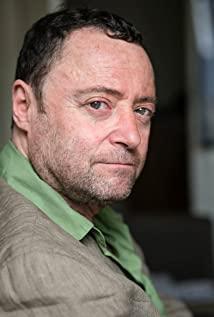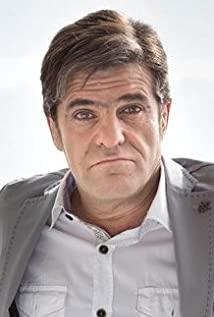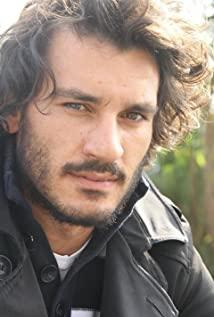Pretending to be a Persian, inventing a language that he does not understand at all, to deceive someone who could kill him at any time, is "technically" difficult, but even more difficult is the mental torture, he must forget his racial identity , to accept another identity, and at the same time helplessly watch the compatriots around him die.
A sandwich was exchanged for a book that could not be read, and a book was exchanged for a chance to live. For the Nazis, his life was only enough to exchange for two cans of meat. The opening scenes of "Persian Lessons" are like a "barter game", showing the sadness of the era: food is more important than everything (for the Nazis), and life is inferior Canned meat.
Countless movies have been made about the Holocaust or Jewish concentration camps, and new works are released almost every year, some of which are good ones, and some of which are inaccurate. And this "Persian Secret Language" received a lot of praise after its premiere at the Berlin Film Festival last year. What's the point of it?
Forget who you are to live
The first is choosing a good story. A Jew who was imprisoned in a concentration camp lied that he was a Persian in order to survive, so he had to create a fake Persian language and successfully deceived the Nazi officers who wanted to learn Persian language. The brief introduction of the story is enough to make people imagine How tortuous and thrilling the process was. The film is actually adapted from the short story "Erfindung einer Sprache" (meaning "the invention of language") by Wolfgang Kohlhaase, and the original author himself is a well-known German director and screenwriter, who won the 2010 Berlin Film Festival Golden Bear Award. The movie claims to be "Inspired by true events", although "Inspired by true events" is less realistic than "Based on a true story", but I am still quite skeptical that such a story actually happened , even if only the details are different. Of course, we are just watching movies, as long as the logic of the drama is established, there is no need to care too much.
Like the protagonist of the Hungarian film Son of Saul (who disposes of corpses for the camp), Gilles, the hero of Secret Persian, is not a typical Jew in the camp. He wasn't even a virtuous man, and in the beginning, survival was his only belief. In order to hide his true ethnic identity, he barely interacted with other Jews in the concentration camp, and in the fear of death that followed him, he even spoke fake Persian when he was unconscious on the sickbed. His attitude of living like a rat may not be worthy of praise, but he watched the Jewish compatriots being sent to death by the Nazis one after another, and the children's toys left in the open space, and finally he was still struggling for his own sake. Stealing his life, he felt guilty for his own life. Even if his survival was right, he never harmed any of his compatriots—in fact, as long as he showed a little flaw, he could die like other people at any time, or even worse. .
Pretending to be a Persian, inventing a language that he does not understand at all, to deceive someone who could kill him at any time, is "technically" difficult, but even more difficult is the mental torture, he must forget his racial identity , to accept another identity, and at the same time helplessly watch the compatriots around him die. Although Hong Kong people have not yet come to disguise themselves as people of another ethnic group to survive, it is probably not difficult to understand the feeling of watching their compatriots die.
His own suffering, as well as the suffering he witnessed to his fellow citizens, gave him enough energy to finally read the list of concentration camps. He survived by pretending to be a Persian, but he also survived by the names of the more than 2,000 Jews, and he knew that his destiny with his fellow Jews was linked. The language he created in the names of his compatriots, when Nazi officers thought it was real Persian, praised it as the most beautiful language in the world, and even shyly recited to Gilles what he wrote in fake Persian poetry.
Homophobia among Nazi officers
The other protagonist, Nazi officer Klaus Koch, is also not a typical heinous Nazi. Born in poverty, he did not really believe in the Nazis. Although his official position in the concentration camp was not low, he was only in charge of the kitchen. His dream is to open a restaurant in Tehran, Iran after the war, because his "brother" is there. How Klaus Koch views his relationship with Gilles is also very intriguing. It seems that he did not only regard the other party as a Persian teacher, but invested far more trust and emotion than this, until the Nazis finally retreated and wanted to kill all prisoners in the concentration camp At the time, he took the risk to rescue him. He may have regarded Gilles as a distant "brother" who had been separated for a long time, but the "brother" in Tehran might not really be his real brother. Another officer said that there was no such brother in his family background. And Gilles and Klaus Koch also talked about love in Persian teaching. Klaus Koch's reaction was particularly subtle, as if someone who had loved for a long time was waiting for him in the distance. The movie suggests that Klaus Koch may be gay.
Whether Klaus Koch is gay or not seems to be irrelevant in a film telling the story of the concentration camp, but considering that the Nazis were anti-gay, this means that the Nazi officer Klaus Koch may also be disguising his identity. people who survive. He and Gilles who pretended to be a Persian were actually the same kind of person.
What's more interesting is that the movie has a soap opera-like plot. Several heterosexual Nazi soldiers report each other because of jealousy, and they end up hurting themselves and others. The film's satire of the Nazis, using humorous methods, makes people laugh from time to time, and also reduces the heavy feeling of the film.
One more interesting thing about this movie. As a German, Russian and Belarusian co-production, it was selected by Belarus as the representative to compete for the Oscar for Best International Film Award, but in the end, because most of the staff behind the scenes did not belong to Belarus and were not filmed in Belarusian language, and was disqualified. This is reminiscent of "Youth Me", which represented Hong Kong in the Oscars. The situation is similar to "Persian Secret", but it can still continue to represent Hong Kong.
View more about Persian Lessons reviews











